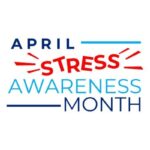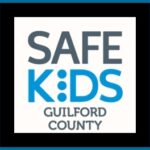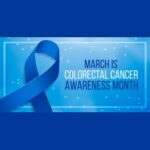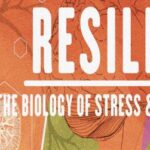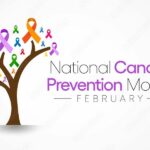Prescription Drugs
Brief Description
 Some medications have psychoactive (mind-altering) properties. Because of this they are sometimes abused, that is taken for reasons or in ways or amounts not intended by a doctor, or taken by someone other than the person for whom they are prescribed. In fact, prescription and over-the-counter (OTC) drugs are, after marijuana (and alcohol), the most commonly abused substances by Americans 14 and older.
Some medications have psychoactive (mind-altering) properties. Because of this they are sometimes abused, that is taken for reasons or in ways or amounts not intended by a doctor, or taken by someone other than the person for whom they are prescribed. In fact, prescription and over-the-counter (OTC) drugs are, after marijuana (and alcohol), the most commonly abused substances by Americans 14 and older.
People often think that prescription and OTC drugs are safer than illicit drugs, but that’s only true when they are taken exactly as prescribed and for the purpose intended. When abused, prescription and OTC drugs can be addictive and put abusers at risk for other adverse health effects, including overdose—especially when taken along with other drugs or alcohol.
Opioids include:
Fentanyl (Duragesic®)
Hydrocodone (Vicodin®)
Oxycodone (OxyContin®)
Oxymorphone (Opana®)
Propoxyphene (Darvon®)
Hydromorphone (Dilaudid®)
Meperidine (Demerol®)
Diphenoxylate (Lomotil®)
Central nervous system depressants include:
Pentobarbital sodium (Nembutal®)
Diazepam (Valium®)
Alprazolam (Xanax®)
Stimulants include:
Dextroamphetamine (Dexedrine®)
Methylphenidate (Ritalin® and Concerta®)
Amphetamines (Adderall®)
Taking a drug in a higher quantity or in another manner than prescribed. Most prescription drugs are dispensed orally in tablets, but abusers sometimes crush the tablets and snort or inject the powder. This hastens the entry of the drug into the bloodstream and the brain and amplifies its effects.
Taking a drug for another purpose than prescribed. All of the drug types mentioned can produce pleasurable effects at sufficient quantities, so taking them for the purpose of getting high is one of the main reasons people abuse them.
ADHD drugs like Adderall are also often abused by students seeking to improve their academic performance. However, although they may boost alertness, there is little evidence they improve cognitive functioning for those without a medical condition.
For example, stimulants such as Ritalin achieve their effects by acting on the same neurotransmitter systems as cocaine. Opioid pain relievers such as OxyContin attach to the same cell receptors targeted by illegal opioids like heroin. Prescription depressants produce sedating or calming effects in the same manner as the club drugs GHB and rohypnol. And when taken in very high doses, dextromethorphan acts on the same cell receptors as PCP or ketamine, producing similar out-of-body experiences.
When abused, all of these classes of drugs directly or indirectly cause a pleasurable increase in the amount of dopamine in the brain’s reward pathway. Repeatedly seeking to experience that feeling can lead to addiction.

Adverse Health Consequences
 The Drug Abuse Warning Network (DAWN), which monitors emergency department visits in selected areas across the Nation, reported that approximately 1 million emergency room visits in 2009 could be attributed to prescription drug abuse. Roughly 343,000 involved prescription opioid pain relievers, a rate more than double that of 5 years prior. ED visits also more than doubled for CNS stimulants, involved in nearly 22,000 visits in 2009, as well as CNS depressants (anxiolytics, sedatives, and hypnotics), involved in 363,000 visits. Of the latter, benzodiazepines (e.g., Xanax) comprised the vast majority. Rates for a popular prescribed nonbenzodiazepine sleep aid, zolpidem (Ambien), rose from roughly 13,000 in 2004 to 29,000 in 2009. More than half of ED visits for prescription drug abuse involved multiple drugs.
The Drug Abuse Warning Network (DAWN), which monitors emergency department visits in selected areas across the Nation, reported that approximately 1 million emergency room visits in 2009 could be attributed to prescription drug abuse. Roughly 343,000 involved prescription opioid pain relievers, a rate more than double that of 5 years prior. ED visits also more than doubled for CNS stimulants, involved in nearly 22,000 visits in 2009, as well as CNS depressants (anxiolytics, sedatives, and hypnotics), involved in 363,000 visits. Of the latter, benzodiazepines (e.g., Xanax) comprised the vast majority. Rates for a popular prescribed nonbenzodiazepine sleep aid, zolpidem (Ambien), rose from roughly 13,000 in 2004 to 29,000 in 2009. More than half of ED visits for prescription drug abuse involved multiple drugs.
Health Concerns
Stimulants can have strong effects on the cardiovascular system. Taking high doses of a stimulant can dangerously raise body temperature and cause irregular heartbeat or even heart failure or seizures. Also, taking some stimulants in high doses or repeatedly can lead to hostility or feelings of paranoia.
Opioids can produce drowsiness, cause constipation, and—depending upon the amount taken—depress breathing. The latter effect makes opioids particularly dangerous, especially when they are snorted or injected or combined with other drugs or alcohol. More people die from overdoses of prescription opioids than from all other drugs combined, including heroin and cocaine.
CNS depressants slow down brain activity and can cause sleepiness and loss of coordination. Continued use can lead to physical dependence and withdrawal symptoms if discontinuing use.
Dextromethorphan can cause impaired motor function, numbness, nausea or vomiting, and increased heart rate and blood pressure. On rare occasions, hypoxic brain damage—caused by severe respiratory depression and a lack of oxygen to the brain—has occurred due to the combination of dextromethorphan with decongestants often found in the medication.
All of these drugs have the potential for addiction, and this risk is amplified when they are abused. Also, as with other drugs, abuse of prescription and OTC drugs can alter a person’s judgment and decision making, leading to dangerous behaviors such as unsafe sex and drugged driving.
Source: NIDA (National Institute on Drug Abuse)




